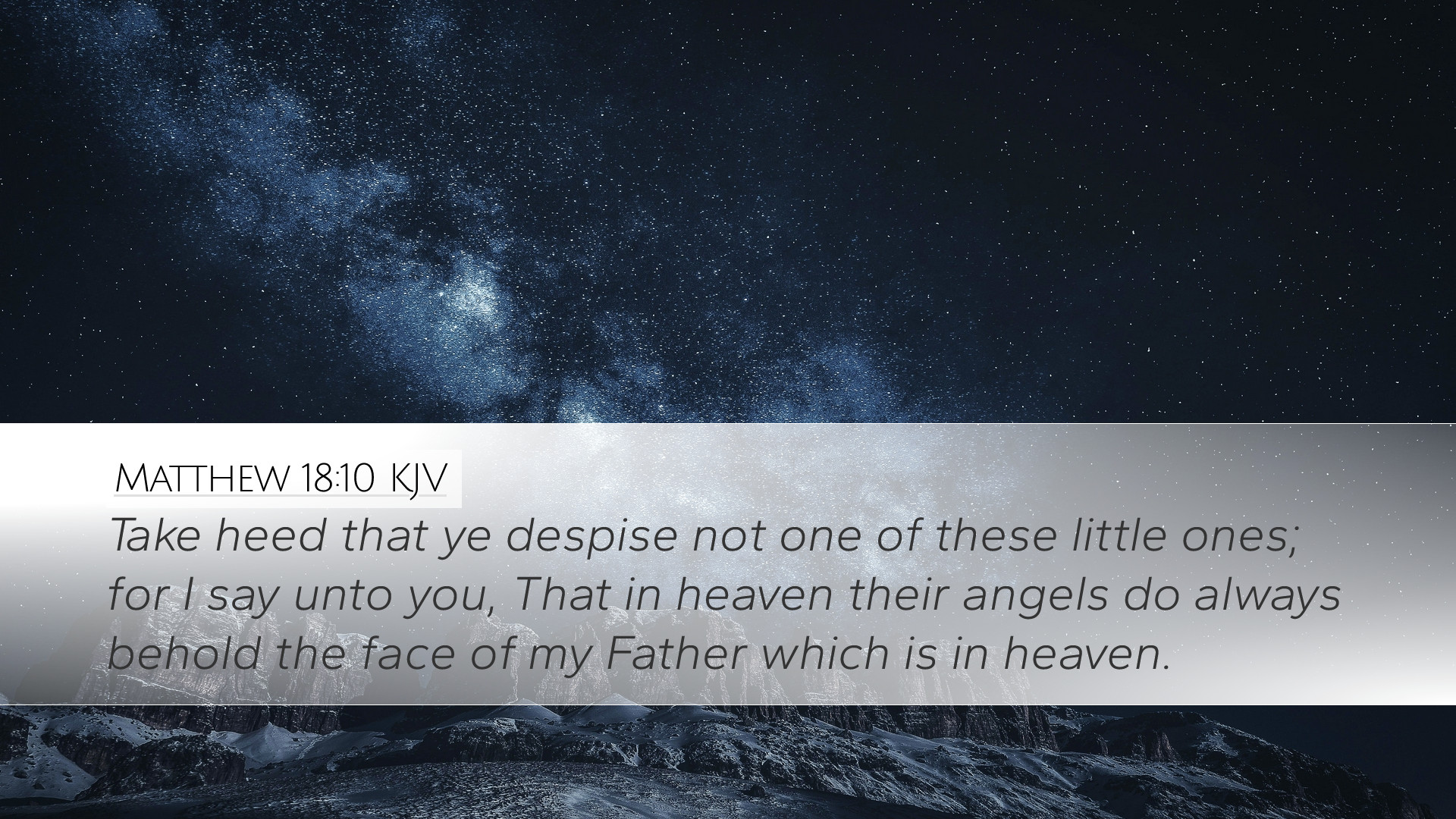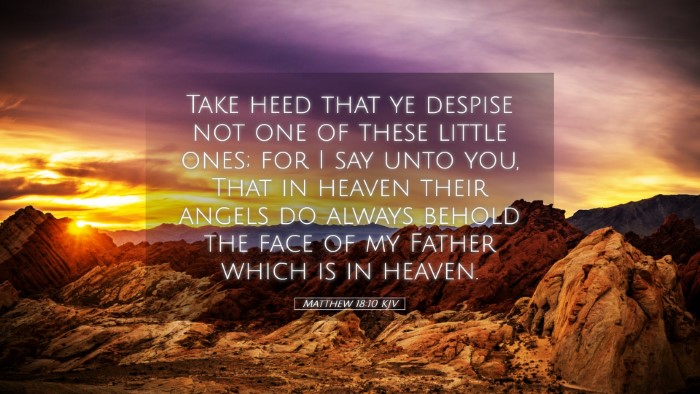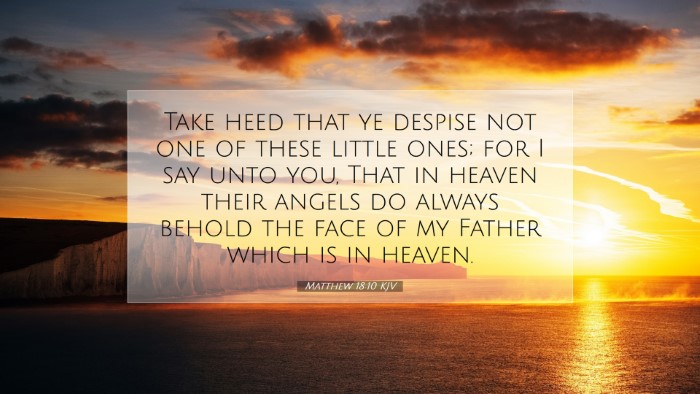Commentary on Matthew 18:10
Matthew 18:10 states: "Take heed that you do not despise one of these little ones; for I say unto you, that in heaven their angels do always behold the face of my Father which is in heaven." This verse presents a profound reminder of the value of children in the eyes of God and the vigilance that believers must maintain in their treatment of others, especially the vulnerable.
Contextual Understanding
To fully grasp the significance of Matthew 18:10, we must consider the surrounding passages where Jesus emphasizes humility, dependence, and the worth of those who are often overlooked. Notably, this verse occurs in a section where Jesus discusses the necessity of child-like faith and humility (Matthew 18:1-4). Here, the little ones symbolize not only children but also humble believers, those who might be marginalized in society.
The Exhortation to Heed
The phrase "Take heed" serves as a stern reminder that believers must actively guard their hearts against feelings of contempt or disregard for the little ones. Matthew Henry elaborates on this, emphasizing that to despise anyone, especially the vulnerable, goes against the love of Christ and the core of Christian behavior.
- Importance of Watchfulness: Barnes notes that this admonition requires continual vigilance in our interactions with others. It is easy to overlook those who do not seem important in our eyes; however, Jesus teaches that everyone has value in the eyes of God.
- Preservation of Humility: Clarke points out that humility is paramount. By referring to “these little ones,” Jesus signifies not only children but also those of humble status in the faith community.
The Value of 'Little Ones'
In this context, the term 'little ones' can represent children, new believers, and those perceived as weak or unimportant. Matthew Henry emphasizes that these 'little ones' hold a special place in God’s kingdom, worthy of a believer's respect and care. Theologians often debate the broader implications of Jesus' teachings about 'little ones,' viewing them as illustrative of the kingdom's values—where the last are first, and the meek shall inherit the earth (Matthew 5:5).
The Divine Watchers
The latter part of the verse introduces a profound theological assertion regarding angels. The phrase "their angels do always behold the face of my Father which is in heaven" suggests that these little ones have a special relationship with God, warranting divine attentiveness.
- Angelic Guardianship: Clarke discusses the interpretation of angels as guardians for believers. This encourages the church to understand the significance of its duty to protect and nurture those who are vulnerable.
- God’s Affection: Barnes highlights that this verse signifies God’s watchful love over those who are often disregarded by society. This heavenly protection honors the intrinsic value of every person before God.
Theological Implications
The implications of Matthew 18:10 extend deeply into the ethical responsibilities of Christians. Every believer is called to foster an environment that promotes love, acceptance, and protection, particularly for those considered 'little' or insignificant by worldly standards. This exhortation challenges communities of faith to examine their attitudes and actions toward their most vulnerable members.
- Value of Every Individual: The verse insists that every individual, regardless of their status, has eternal significance in God’s eyes. The call to prevent disdain for the less fortunate becomes central to the Christian ethical framework.
- Encouragement for Pastoral Care: For pastors and church leaders, this verse serves as a clarion call to prioritize the needs of the vulnerable within their communities, urging them to model Christ-like compassion.
Conclusion
In summary, Matthew 18:10 encapsulates crucial teachings about humility, care for others, and the recognition of God’s protective watch over the 'little ones.' It resonates deeply within Christian ethics and communal life, harmonizing with Jesus’ broader teachings on the kingdom of heaven’s values. Pastors, students, and scholars are encouraged to meditate on this verse and its implications to foster a community rooted in love, respect, and acknowledgment of every person's worth.


